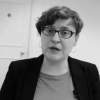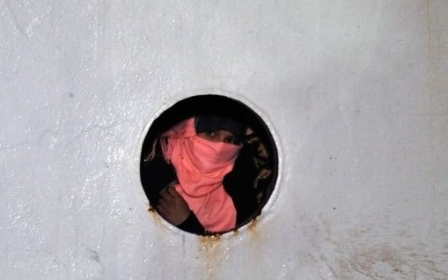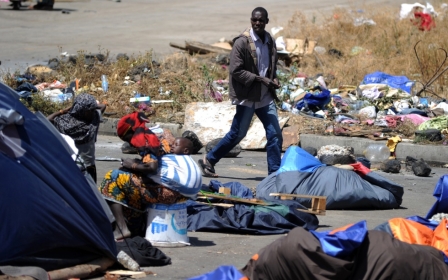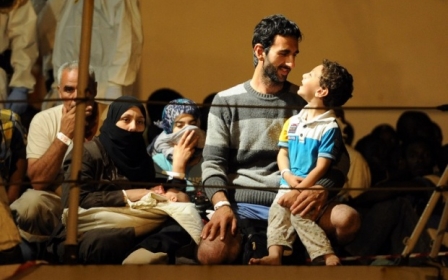We must not let them drown: Challenging the politics of deterrence
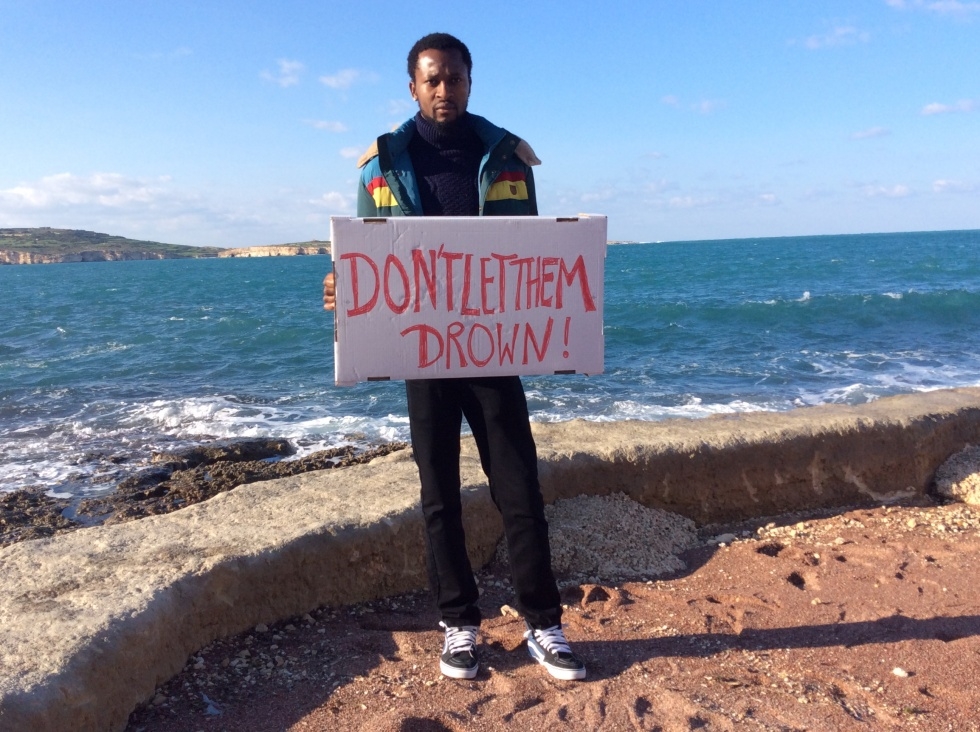
Make no mistake: migrant tragedies in the Mediterranean that we have witnessed recently are not accidents. They cannot be blamed on smugglers either. Those deaths are direct consequences of the European Union (EU) immigration policies focused on deterrence, which made it virtually impossible for migrants to enter Europe, whether they are fleeing conflict, persecution or poverty.
Those three factors are usually intertwined in the so-called asylum-migration nexus, or "mixed migration", thus it is impossible to clearly delineate economic migrants from refugees. In Malta, where I used to work, nearly 100 percent of people arriving by boat claim asylum and the majority are granted some form of humanitarian protection.
Therefore, one could argue that by deterring people (push-backs being an extreme example of this) from applying for international protection, the EU is actually violating the 1951 Convention relating to the Status of Refugees which clearly states that "everyone has a right to seek asylum". With the security situation deteriorating every day in Libya, recurring conflict in Gaza, and with refugee crises in Syria and Eritrea, to name but a few, we are bound to see more and more people fleeing for their lives. There are no simple solutions, but we can do something to prevent another tragedy at sea.
More than 140,000 people have been rescued thanks to the Mare Nostrum search-and-rescue operations led by Italy. Mare Nostrum was a response to the Lampedusa tragedy in October 2013 where nearly 400 Africans, mainly Eritreans, died at sea. Given how small Eritrea is, even in London I met Eritreans who lost their relatives and friends when the dinghy carrying hundreds of desperate people fleeing a regime described as the "North Korea of Africa" capsized. One of the refugee women I work with, an Eritrean, burst into tears during our training session when speaking about Lampedusa. It has now become a symbol of trauma for all Eritreans in exile, regardless of the way they managed to reach Europe.
More than 3,400 people died attempting to cross the Mediterranean in 2014. Nevertheless, due to problems with funding, and more importantly, lack of political will, in October 2014 Mare Nostrum was replaced by a much smaller Triton operation under the auspices of Frontex, an agency whose role is to control borders, rather than to save lives. The UK government refused to co-fund the operation, arguing that rescuing drowning people will only serve as an incentive for others. This is the most cynical, cruel and inhumane statement I have ever heard, and I have been working in the field of asylum and migration for over 10 years.
My message to UK Prime Minister David Cameron is: letting people drown is not the answer. We need to provide safe and legal routes to Europe, and we need more extensive search and rescue operations in the Mediterranean Sea. Furthermore, those operations must be detached from the business of controlling borders, and instead they need to have a clear humanitarian, apolitical and impartial status. Their only task should be to save lives, regardless of shifting political agendas in the EU.
This is quite a radical call given how distant from ethical considerations our political discourses on migration and asylum have become. As an anthropologist, I have always tried to understand the experience of forced migration through the eyes of people who had made those dangerous journeys. In Malta, I have heard many heartbreaking stories of those who survived the Mediterranean crossing, and those who lost family members and friends at sea.
I do not wish to speak on their behalf because I do not own their pain, and I do not want to take their voice away; but you can watch a short video testimony of a Nigerian refugee whose boat was left adrift for four days before it was rescued by the Maltese coast guards. I have witnessed so much human suffering, and it has affected me very deeply. Is it lack of imagination or lack of compassion that is behind the politics of deterrence, the politics of "letting them drown?"
Don't Let Them Drown campaign from Natalia Paszkiewicz on Vimeo.
It is crucial to move away from the discourse of numbers when discussing migration, and to look at the real human stories behind the act of fleeing one’s country of origin. It is not easy, as refugees are marked by the direct experience of violence (including structural violence such as extreme poverty) that disturbs our existential order.
We do not wish to welcome refugees because we are afraid that the fate similar to theirs can befall us; we feel anxiety when we are reminded of something we try to forget, namely the terror and horror that many forced migrants carry with themselves. Even the language that we use – the expression "boat people" – is dehumanising. Do we call people who travel by plane "plane people?" Or people who travel by car "car people?" No, we don’t. So why then do we use the term "boat people?"
I would argue that by referring to the imagery of boat and sea we demonise the migrants even more, as arriving by sea draws on often unconscious fears of invasion and flooding. There is also a social class aspect looming in the background: people who risk their lives and cross the Mediterranean in toy-like dinghies are often the poorest and the most desperate – but also the most resilient and determined.
During one of my visits to Sicily, I saw a Libyan fishing boat abandoned near the coast. Some migrants board those fishing boats – they are relatively safer than the dinghies. It had a colourful eye painted on the front to ward off bad luck. I did not manage to find out the story behind this boat arrival, but I kept asking myself: did the magical symbol work? Has everyone managed to reach Sicily safely?
I still think about this boat, and many other boats I saw in Malta. And every time there is another tragedy happening in the Mediterranean, I think about all my friends in Malta who survived the crossing. I almost see their faces in media reports that refer to people who are missing, or whose bodies were found floating in the water. And I am hoping that everyone will be rescued. I just don’t want anyone to drown.
- Dr Natalia Paszkiewicz is a Projects Coordinator at the IARS International Institute. Her academic background is in anthropology, refugee studies and social policy. She has been working in the field of migration for over ten years, both in the UK and in Malta.
The views expressed in this article belong to the author and do not necessarily reflect the editorial policy of Middle East Eye.
Photo: Sunday, a Nigerian refugee (Natalia Paszkiewicz)
Middle East Eye propose une couverture et une analyse indépendantes et incomparables du Moyen-Orient, de l’Afrique du Nord et d’autres régions du monde. Pour en savoir plus sur la reprise de ce contenu et les frais qui s’appliquent, veuillez remplir ce formulaire [en anglais]. Pour en savoir plus sur MEE, cliquez ici [en anglais].


